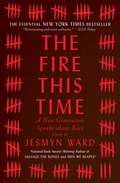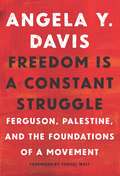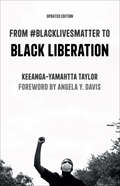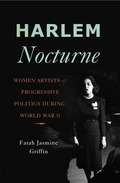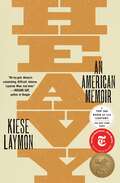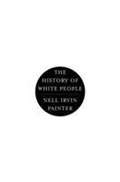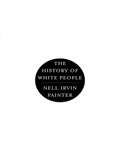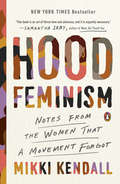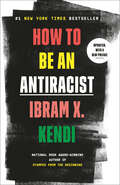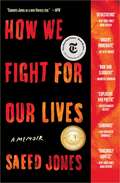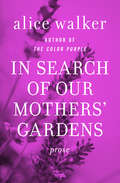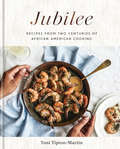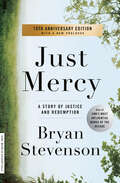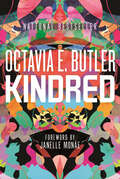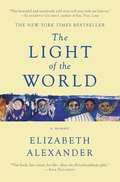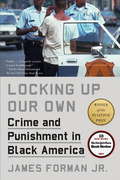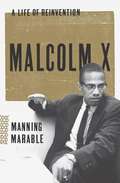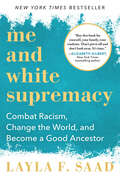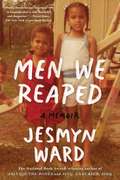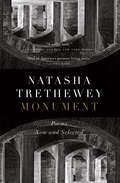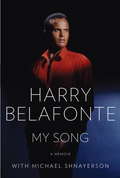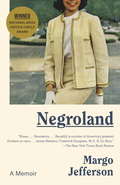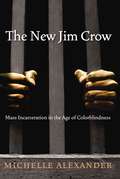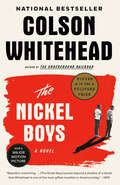Special Collections
Black Liberation Reading List
- Table View
- List View
The Fire This Time
by Jesmyn WardNational Book Award-winner Jesmyn Ward takes James Baldwin's 1963 examination of race in America, The Fire Next Time, as a jumping off point for this groundbreaking collection of essays and poems about race from the most important voices of her generation and our time.
In light of recent tragedies and widespread protests across the nation, The Progressive magazine republished one of its most famous pieces: James Baldwin's 1962 "Letter to My Nephew," which was later published in his landmark book, The Fire Next Time. Addressing his fifteen-year-old namesake on the one hundredth anniversary of the Emancipation Proclamation, Baldwin wrote: "You know and I know, that the country is celebrating one hundred years of freedom one hundred years too soon."
Award-winning author Jesmyn Ward knows that Baldwin's words ring as true as ever today. In response, she has gathered short essays, memoir, and a few essential poems to engage the question of race in the United States. And she has turned to some of her generation's most original thinkers and writers to give voice to their concerns.
The Fire This Time is divided into three parts that shine a light on the darkest corners of our history, wrestle with our current predicament, and envision a better future. Of the eighteen pieces, ten were written specifically for this volume.
In the fifty-odd years since Baldwin's essay was published, entire generations have dared everything and made significant progress. But the idea that we are living in the post-Civil Rights era, that we are a "post-racial" society is an inaccurate and harmful reflection of a truth the country must confront. Baldwin's "fire next time" is now upon us, and it needs to be talked about.
Contributors include Carol Anderson, Jericho Brown, Garnette Cadogan, Edwidge Danticat, Rachel Kaadzi Ghansah, Mitchell S. Jackson, Honoree Jeffers, Kima Jones, Kiese Laymon, Daniel Jose Older, Emily Raboteau, Claudia Rankine, Clint Smith, Natasha Trethewey, Wendy S. Walters, Isabel Wilkerson, and Kevin Young.
Freedom Is a Constant Struggle
by Angela Y. Davis and Frank BaratIn these newly collected essays, interviews, and speeches, world-renowned activist and scholar Angela Y. Davis illuminates the connections between struggles against state violence and oppression throughout history and around the world. Reflecting on the importance of black feminism, intersectionality, and prison abolitionism for today's struggles, Davis discusses the legacies of previous liberation struggles, from the Black Freedom Movement to the South African anti-Apartheid movement. She highlights connections and analyzes today's struggles against state terror, from Ferguson to Palestine. Facing a world of outrageous injustice, Davis challenges us to imagine and build the movement for human liberation. And in doing so, she reminds us that "Freedom is a constant struggle. "
From #BlackLivesMatter to Black Liberation
by Keeanga-Yamahtta TaylorThe author of Race for Profit carries out &“[a] searching examination of the social, political and economic dimensions of the prevailing racial order&” (Michelle Alexander, author of The New Jim Crow). In this winner of the Lannan Cultural Freedom Prize for an Especially Notable Book, Keeanga-Yamahtta Taylor &“not only exposes the canard of color-blindness but reveals how structural racism and class oppression are joined at the hip&” (Robin D. G. Kelley, author of Freedom Dreams). The eruption of mass protests in the wake of the police murders of Michael Brown in Ferguson, Missouri, and Eric Garner in New York City have challenged the impunity with which officers of the law carry out violence against black people and punctured the illusion of a post-racial America. The Black Lives Matter movement has awakened a new generation of activists. In this stirring and insightful analysis, activist and scholar Keeanga-Yamahtta Taylor surveys the historical and contemporary ravages of racism and the persistence of structural inequality, such as mass incarceration and black unemployment. In this context, she argues that this new struggle against police violence holds the potential to reignite a broader push for black liberation. &“This brilliant book is the best analysis we have of the #BlackLivesMatter moment of the long struggle for freedom in America. Keeanga-Yamahtta Taylor has emerged as the most sophisticated and courageous radical intellectual of her generation.&” —Dr. Cornel West, author of Race Matters &“A must read for everyone who is serious about the ongoing praxis of freedom.&” —Barbara Ransby, author of Ella Baker and the Black Freedom Movement &“[A] penetrating, vital analysis of race and class at this critical moment in America&’s racial history.&” —Gary Younge, author of The Speech: The Story Behind Dr. Martin Luther King Jr.'s Dream
Harlem Nocturne
by Farah Jasmine GriffinAs World War II raged overseas, Harlem witnessed a battle of its own. Brimming with creative and political energy, Harlem's diverse array of artists and activists launched a bold cultural offensive aimed at winning democracy for all Americans, regardless of race or gender. In Harlem Nocturne, esteemed scholar Farah Jasmine Griffin tells the stories of three black female artists whose creative and political efforts fueled this movement for change: novelist Ann Petry, a major new literary voice; choreographer and dancer Pearl Primus, a pioneer in her field; and composer and pianist Mary Lou Williams, a prominent figure in the emergence of Be-Bop. As Griffin shows, these women made enormous strides for social justice during the war, laying the groundwork for the Civil Rights Movement before the Cold War temporarily froze their democratic dreams.A rich account of three distinguished artists and the city that inspired them, Harlem Nocturne captures a period of unprecedented vitality and progress for African Americans and women in the United States.
Heavy
by Kiese LaymonIn this powerful and provocative memoir, genre-bending essayist and novelist Kiese Laymon explores what the weight of a lifetime of secrets, lies, and deception does to a black body, a black family, and a nation teetering on the brink of moral collapse.
Kiese Laymon is a fearless writer. In his essays, personal stories combine with piercing intellect to reflect both on the state of American society and on his experiences with abuse, which conjure conflicted feelings of shame, joy, confusion and humiliation. Laymon invites us to consider the consequences of growing up in a nation wholly obsessed with progress yet wholly disinterested in the messy work of reckoning with where we’ve been. In Heavy, Laymon writes eloquently and honestly about growing up a hard-headed black son to a complicated and brilliant black mother in Jackson, Mississippi.
From his early experiences of sexual violence, to his suspension from college, to his trek to New York as a young college professor, Laymon charts his complex relationship with his mother, grandmother, anorexia, obesity, sex, writing, and ultimately gambling. By attempting to name secrets and lies he and his mother spent a lifetime avoiding, Laymon asks himself, his mother, his nation, and us to confront the terrifying possibility that few in this nation actually know how to responsibly love, and even fewer want to live under the weight of actually becoming free.
A personal narrative that illuminates national failures, Heavy is defiant yet vulnerable, an insightful, often comical exploration of weight, identity, art, friendship, and family that begins with a confusing childhood—and continues through twenty-five years of haunting implosions and long reverberations.
Winner of the 2018 Andrew Carnegie Medal for Non-Fiction
The History of White People
by Nell Irvin PainterEver since the Enlightenment, race theory and its inevitable partner, racism, have followed a crooked road, constructed by dominant peoples to justify their domination of others. Filling a huge gap in historical literature that long focused on the non-white, eminent historian Nell Irvin Painter guides us through more than two thousand years of Western civilization, tracing not only the invention of the idea of race but also the frequent worship of "whiteness" for economic, social, scientific, and political ends. Our story begins in Greek and Roman antiquity, where the concept of race did not exist, only geography and the opportunity to conquer and enslave others. Not until the eighteenth century did an obsession with whiteness flourish, with the German invention of the notion of Caucasian beauty. This theory made northern Europeans into "Saxons," "Anglo-Saxons," and "Teutons," envisioned as uniquely handsome natural rulers. Here was a worldview congenial to northern Europeans bent on empire. There followed an explosion of theories of race, now focusing on racial temperament as well as skin color. Spread by such intellectuals as Madame de Stael and Thomas Carlyle, white race theory soon reached North America with a vengeance. Its chief spokesman, Ralph Waldo Emerson, did the most to label Anglo-Saxons-icons of beauty and virtue-as the only true Americans. It was an ideal that excluded not only blacks but also all ethnic groups not of Protestant, northern European background. The Irish and Native Americans were out and, later, so were the Chinese, Jews, Italians, Slavs, and Greeks-all deemed racially alien. Did immigrations threaten the very existence of America? Americans were assumed to be white, but who among poor immigrants could become truly American? A tortured and convoluted series of scientific explorations developed-theories intended to keep Anglo-Saxons at the top: the ever-popular measurement of skulls, the powerful eugenics movement, and highly biased intelligence tests-all designed to keep working people out and down. As Painter reveals, power-supported by economics, science, and politics-continued to drive exclusionary notions of whiteness until, deep into the twentieth century, political realities enlarged the category of truly American. A story filled with towering historical figures, The History of White People forcefully reminds us that the concept of one white race is a recent invention. The meaning, importance, and realty of this all-too-human thesis of race have buckled under the weight of a long and rich unfolding of events.
The History of White People
by Nell Irvin PainterA New York Times bestseller: "This terrific new book . . . [explores] the 'notion of whiteness,' an idea as dangerous as it is seductive."--Boston Globe Telling perhaps the most important forgotten story in American history, eminent historian Nell Irvin Painter guides us through more than two thousand years of Western civilization, illuminating not only the invention of race but also the frequent praise of "whiteness" for economic, scientific, and political ends. A story filled with towering historical figures, The History of White People closes a huge gap in literature that has long focused on the non-white and forcefully reminds us that the concept of "race" is an all-too-human invention whose meaning, importance, and reality have changed as it has been driven by a long and rich history of events.
Hood Feminism
by Mikki KendallA potent and electrifying critique of today's feminist movement announcing a fresh new voice in Black feminism
Today's feminist movement has a glaring blind spot, and paradoxically, it is women. Mainstream feminists rarely talk about meeting basic needs as a feminist issue, argues Mikki Kendall, but food insecurity, access to quality education, safe neighborhoods, a living wage, and medical care are all feminist issues.
All too often, however, the focus is not on basic survival for the many, but on increasing privilege for the few. That feminists refuse to prioritize these issues has only exacerbated the age-old problem of both internecine discord and women who rebuff at carrying the title. Moreover, prominent white feminists broadly suffer from their own myopia with regard to how things like race, class, sexual orientation, and ability intersect with gender.
How can we stand in solidarity as a movement, Kendall asks, when there is the distinct likelihood that some women are oppressing others? In her searing collection of essays, Mikki Kendall takes aim at the legitimacy of the modern feminist movement arguing that it has chronically failed to address the needs of all but a few women.
Drawing on her own experiences with hunger, violence, and hypersexualization, along with incisive commentary on politics, pop culture, the stigma of mental health, and more, Hood Feminism delivers an irrefutable indictment of a movement in flux. An unforgettable debut, Kendall has written a ferocious clarion call to all would-be feminists to live out the true mandate of the movement in thought and in deed.
A New York Times Bestseller
How to Be an Antiracist
by Ibram KendiFrom the National Book Award–winning author of Stamped from the Beginning comes a “groundbreaking” (Time) approach to understanding and uprooting racism and inequality in our society—and in ourselves. “The only way to undo racism is to consistently identify and describe it—and then dismantle it.”
Antiracism is a transformative concept that reorients and reenergizes the conversation about racism—and, even more fundamentally, points us toward liberating new ways of thinking about ourselves and each other.
At it's core, racism is a powerful system that creates false hierarchies of human value; its warped logic extends beyond race, from the way we regard people of different ethnicities or skin colors to the way we treat people of different sexes, gender identities, and body types.
Racism intersects with class and culture and geography and even changes the way we see and value ourselves. In How to Be an Antiracist, Kendi takes readers through a widening circle of antiracist ideas—from the most basic concepts to visionary possibilites—that will help readers see all forms of racism clearly, understand their posionous consequences, and work to oppose them in our systems and in ourselves.
Kendi weaves an electrifying combination of ethics, history, law, and science with his own personal story of awakening to antiracism. This is an essential work for anyone who wants to go beyond the awareness of racism to the next step: contributing to the formation of a just and equitable society.
A New York Times Bestseller
How We Fight for Our Lives
by Saeed JonesFrom award-winning poet Saeed Jones, How We Fight for Our Lives—winner of the Kirkus Prize and the Stonewall Book Award—is a &“moving, bracingly honest memoir&” (The New York Times Book Review) written at the crossroads of sex, race, and power. One of the best books of the year as selected by The New York Times; The Washington Post; NPR; Time; The New Yorker; O, The Oprah Magazine; Harper&’s Bazaar; Elle; BuzzFeed; Goodreads; and many more.&“People don&’t just happen,&” writes Saeed Jones. &“We sacrifice former versions of ourselves. We sacrifice the people who dared to raise us. The &‘I&’ it seems doesn&’t exist until we are able to say, &‘I am no longer yours.&’&” Haunted and haunting, How We Fight for Our Lives is a stunning coming-of-age memoir about a young, black, gay man from the South as he fights to carve out a place for himself, within his family, within his country, within his own hopes, desires, and fears. Through a series of vignettes that chart a course across the American landscape, Jones draws readers into his boyhood and adolescence—into tumultuous relationships with his family, into passing flings with lovers, friends, and strangers. Each piece builds into a larger examination of race and queerness, power and vulnerability, love and grief: a portrait of what we all do for one another—and to one another—as we fight to become ourselves. An award-winning poet, Jones has developed a style that&’s as beautiful as it is powerful—a voice that&’s by turns a river, a blues, and a nightscape set ablaze. How We Fight for Our Lives is a one-of-a-kind memoir and a book that cements Saeed Jones as an essential writer for our time.
In Search of Our Mothers' Gardens
by Alice WalkerA collection of early personal and political essays from the Pulitzer Prize–winning author of The Color Purple.Includes a new letter written by the author What is a womanist? Alice Walker sets out to define the concept in this anthology of early essays and other nonfiction pieces. As she outlines it, a womanist is a person who prefers to side with the oppressed: with women, with people of color, with the poor. As a writer, Walker has always taken such people as her primary subjects, and her search for paths toward self-possession and freedom always holds out hope for the transformative power of compassion and love. Whether she&’s taking on nuclear proliferation, the promise and problems of the civil rights movement, or her own creative process, Walker always brings to bear a fearless determination to tell the truth. This ebook features an illustrated biography of Alice Walker including rare photos from the author&’s personal collection.
Jubilee
by Toni Tipton-MartinMore than 100 recipes that paint a rich, varied picture of the true history of African American cooking—from a James Beard Award–winning food writer NAMED ONE OF FALL&’S BEST COOKBOOKS BY The New York Times • Bon Appétit • Eater • Food & Wine • Kitchn • Chowhound Throughout her career, Toni Tipton-Martin has shed new light on the history, breadth, and depth of African American cuisine. She&’s introduced us to black cooks, some long forgotten, who established much of what&’s considered to be our national cuisine. After all, if Thomas Jefferson introduced French haute cuisine to this country, who do you think actually cooked it? In Jubilee, Tipton-Martin brings these masters into our kitchens. Through recipes and stories, we cook along with these pioneering figures, from enslaved chefs to middle- and upper-class writers and entrepreneurs. With more than 100 recipes, from classics such as Sweet Potato Biscuits, Seafood Gumbo, Buttermilk Fried Chicken, and Pecan Pie with Bourbon to lesser-known but even more decadent dishes like Bourbon & Apple Hot Toddies, Spoon Bread, and Baked Ham Glazed with Champagne, Jubilee presents techniques, ingredients, and dishes that show the roots of African American cooking—deeply beautiful, culturally diverse, fit for celebration.
Just Mercy
by Bryan Stevenson#1 NEW YORK TIMES BESTSELLER • NOW A MAJOR MOTION PICTURE STARRING MICHAEL B. JORDAN AND JAMIE FOXX • A powerful true story about the potential for mercy to redeem us, and a clarion call to fix our broken system of justice—from one of the most brilliant and influential lawyers of our time. &“[Bryan Stevenson&’s] dedication to fighting for justice and equality has inspired me and many others and made a lasting impact on our country.&”—John LegendNAMED ONE OF THE MOST INFLUENTIAL BOOKS OF THE DECADE BY CNN • Named One of the Best Books of the Year by The New York Times • The Washington Post • The Boston Globe • The Seattle Times • Esquire • Time Bryan Stevenson was a young lawyer when he founded the Equal Justice Initiative, a legal practice dedicated to defending those most desperate and in need: the poor, the wrongly condemned, and women and children trapped in the farthest reaches of our criminal justice system. One of his first cases was that of Walter McMillian, a young man who was sentenced to die for a notorious murder he insisted he didn&’t commit. The case drew Bryan into a tangle of conspiracy, political machination, and legal brinksmanship—and transformed his understanding of mercy and justice forever. Just Mercy is at once an unforgettable account of an idealistic, gifted young lawyer&’s coming of age, a moving window into the lives of those he has defended, and an inspiring argument for compassion in the pursuit of true justice.Winner of the Carnegie Medal for Excellence in Nonfiction • Winner of the NAACP Image Award for Nonfiction • Winner of a Books for a Better Life Award • Finalist for the Los Angeles Times Book Prize • Finalist for the Kirkus Reviews Prize • An American Library Association Notable Book&“Every bit as moving as To Kill a Mockingbird, and in some ways more so . . . a searing indictment of American criminal justice and a stirring testament to the salvation that fighting for the vulnerable sometimes yields.&”—David Cole, The New York Review of Books &“Searing, moving . . . Bryan Stevenson may, indeed, be America&’s Mandela.&”—Nicholas Kristof, The New York Times &“You don&’t have to read too long to start cheering for this man. . . . The message of this book . . . is that evil can be overcome, a difference can be made. Just Mercy will make you upset and it will make you hopeful.&”—Ted Conover, The New York Times Book Review &“Inspiring . . . a work of style, substance and clarity . . . Stevenson is not only a great lawyer, he&’s also a gifted writer and storyteller.&”—The Washington Post &“As deeply moving, poignant and powerful a book as has been, and maybe ever can be, written about the death penalty.&”—The Financial Times &“Brilliant.&”—The Philadelphia Inquirer
Kindred
by Octavia E. ButlerSelected by The Atlantic as one of THE GREAT AMERICAN NOVELS. ("You have to read them.")From the New York Times bestselling author of Parable of the Sower and MacArthur &“Genius&” Grant, Nebula, and Hugo award winner The visionary time-travel classic whose Black female hero is pulled through time to face the horrors of American slavery and explores the impacts of racism, sexism, and white supremacy then and now. &“I lost an arm on my last trip home. My left arm.&”Dana&’s torment begins when she suddenly vanishes on her 26th birthday from California, 1976, and is dragged through time to antebellum Maryland to rescue a boy named Rufus, heir to a slaveowner&’s plantation. She soon realizes the purpose of her summons to the past: protect Rufus to ensure his assault of her Black ancestor so that she may one day be born. As she endures the traumas of slavery and the soul-crushing normalization of savagery, Dana fights to keep her autonomy and return to the present.Blazing the trail for neo-slavery narratives like Colson Whitehead&’s The Underground Railroad and Ta-Nehisi Coates&’s The Water Dancer, Butler takes one of speculative fiction&’s oldest tropes and infuses it with lasting depth and power. Dana not only experiences the cruelties of slavery on her skin but also grimly learns to accept it as a condition of her own existence in the present. &“Where stories about American slavery are often gratuitous, reducing its horror to explicit violence and brutality, Kindred is controlled and precise&” (New York Times).&“Reading Octavia Butler taught me to dream big, and I think it&’s absolutely necessary that everybody have that freedom and that willingness to dream.&” —N. K. Jemisin This book has been published with two different covers. Customers will be shipped the cover available.
The Light of the World
by Elizabeth Alexander"PULITZER PRIZE IN LETTERS: BIOGRAPHY FINALIST"
"NATIONAL BOOK CRITICS CIRLE AWARDS AUTOBIOGRAPHY FINALIST"
New York Times Bestseller
First Lady Michelle Obama's Favorite Book of 2015
A New Yorker, NPR, Boston Globe, Publisher's Weekly, Newsday, Library Journal, People.com, Shelf Awareness, The Root, and St. Louis Dispact Best Book of 2015 Pick
New York Times Book Review Editor's Choice
An Amazon's Best Book of the Month, April 2015
IndieBound Indie Next #1 Pick, May 2015
A deeply resonant memoir for anyone who has loved and lost, from acclaimed poet and Pulitzer Prize finalist Elizabeth Alexander.
In THE LIGHT OF THE WORLD, Elizabeth Alexander finds herself at an existential crossroads after the sudden death of her husband. Channeling her poetic sensibilities into a rich, lucid price, Alexander tells a love story that is, itself, a story of loss. As she reflects on the beauty of her married life, the trauma resulting from her husband's death, and the solace found in caring for her two teenage sons, Alexander universalizes a very personal quest for meaning and acceptance in the wake of loss.
THE LIGHT OF THE WORLD is at once an endlessly compelling memoir and a deeply felt meditation on the blessings of love, family, art, and community. It is also a lyrical celebration of a life well-lived and a paean to the priceless gift of human companionship. For those who have loved and lost, or for anyone who cares what matters most, THE LIGHT OF THE WORLD is required reading.
Locking Up Our Own
by James Forman Jr.Winner of the 2018 Pulitzer Prize for General Non-FictionLonglisted for the National Book AwardOne of the New York Times Book Review's 10 Best Books of 2017Former public defender James Forman, Jr. is a leading critic of mass incarceration and its disproportionate impact on people of colour. In Locking Up Our Own, he seeks to understand the war on crime that began in the 1970s and why it was supported by many African American leaders in the nation's urban centres.Forman shows us that the first substantial cohort of black mayors, judges and police chiefs took office amid a surge in crime and drug addiction. Many prominent black officials, including Washington, DC mayor Marion Barry and federal prosecutor Eric Holder, feared that the gains of the civil rights movement were being undermined by lawlessness - and thus embraced tough-on-crime measures, including longer sentences and aggressive police tactics. In the face of skyrocketing murder rates and the proliferation of open-air drug markets, they believed they had no choice. But the policies they adopted would have devastating consequences for residents of poor black neighbourhoods.A former public defender, Forman tells riveting stories of politicians, community activists, police officers, defendants and crime victims. He writes with compassion about individuals trapped in terrible dilemmas - from the men and women he represented in court to officials struggling to respond to a public safety emergency. Locking Up Our Own enriches our understanding of why American society became so punitive and offers important lessons to anyone concerned about the future of race and the criminal justice system.
Malcolm X
by Manning MarableSelected by The New York Times Book Review as a Notable Book of the Year Years in the making-the definitive biography of the legendary black activist. Of the great figure in twentieth-century American history perhaps none is more complex and controversial than Malcolm X. Constantly rewriting his own story, he became a criminal, a minister, a leader, and an icon, all before being felled by assassins' bullets at age thirty-nine. Through his tireless work and countless speeches he empowered hundreds of thousands of black Americans to create better lives and stronger communities while establishing the template for the self-actualized, independent African American man. In death he became a broad symbol of both resistance and reconciliation for millions around the world. Manning Marable's new biography of Malcolm is a stunning achievement. Filled with new information and shocking revelations that go beyond the Autobiography, Malcolm X unfolds a sweeping story of race and class in America, from the rise of Marcus Garvey and the Ku Klux Klan to the struggles of the civil rights movement in the fifties and sixties. Reaching into Malcolm's troubled youth, it traces a path from his parents' activism through his own engagement with the Nation of Islam, charting his astronomical rise in the world of Black Nationalism and culminating in the never-before-told true story of his assassination. Malcolm X will stand as the definitive work on one of the most singular forces for social change, capturing with revelatory clarity a man who constantly strove, in the great American tradition, to remake himself anew.
Me and White Supremacy
by Layla SaadBased on the viral Instagram challenge that captivated participants worldwide, Me and White Supremacy takes readers on a 28-day journey of how to dismantle the privilege within themselves so that they can stop (often unconsciously) inflicting damage on people of color, and in turn, help other white people do better, too.
When Layla Saad began an Instagram challenge called #meandwhitesupremacy, she never predicted it would spread as widely as it did. She encouraged people to own up and share their racist behaviors, big and small. She was looking for truth, and she got it. Thousands of people participated in the challenge, and nearly 100,000 people downloaded the Me and White Supremacy Workbook.
Updated and expanded from the original workbook, Me and White Supremacy,takes the work deeper by adding more historical and cultural contexts, sharing moving stories and anecdotes, and including expanded definitions, examples, and further resources.Awareness leads to action, and action leads to change. The numbers show that readers are ready to do this work—let's give it to them.
A New York Times Bestseller
Men We Reaped
by Jesmyn WardIn five years, Jesmyn Ward lost five men in her life, to drugs, accidents, suicide and the bad luck that can follow people who live in poverty, particularly black men. Dealing with these losses, one after another, made Jesmyn ask the question: why? And as she began to write about the experience of living through death, she realized the truth - and it took her breath away. Here, she bravely tells her story, revisiting the agonizing losses of her only brother and her friends.
Monument
by Natasha TretheweyLonglisted for the 2018 National Book Award for Poetry “[Trethewey’s poems] dig beneath the surface of history—personal or communal, from childhood or from a century ago—to explore the human struggles that we all face.” —James H. Billington, 13th Librarian of Congress Layering joy and urgent defiance—against physical and cultural erasure, against white supremacy whether intangible or graven in stone—Trethewey’s work gives pedestal and witness to unsung icons. Monument, Trethewey’s first retrospective, draws together verse that delineates the stories of working class African American women, a mixed-race prostitute, one of the first black Civil War regiments, mestizo and mulatto figures in Casta paintings, Gulf coast victims of Katrina. Through the collection, inlaid and inextricable, winds the poet’s own family history of trauma and loss, resilience and love. In this setting, each section, each poem drawn from an “opus of classics both elegant and necessary,”* weaves and interlocks with those that come before and those that follow. As a whole, Monument casts new light on the trauma of our national wounds, our shared history. This is a poet’s remarkable labor to source evidence, persistence, and strength from the past in order to change the very foundation of the vocabulary we use to speak about race, gender, and our collective future. *Academy of American Poets’ chancellor Marilyn Nelson
My Song
by Harry Belafonte and Michael ShnayersonHarry Belafonte is not just one of the greatest entertainers of our time; he has led one of the great American lives of the last century. Now, this extraordinary icon tells us the story of that life, giving us its full breadth, letting us share in the struggles, the tragedies, and, most of all, the inspiring triumphs. Belafonte grew up, poverty-ridden, in Harlem and Jamaica. His mother was a complex woman--caring but withdrawn, eternally angry and rarely satisfied. His father was distant and physically abusive. It was not an easy life, but it instilled in young Harry the hard-nosed toughness of the city and the resilient spirit of the Caribbean lifestyle. It also gave him the drive to make good and channel his anger into actions that were positive and life-affirming. His journey led to the U.S. Navy during World War II, where he encountered an onslaught of racism but also fell in love with the woman he eventually married. After the war he moved back to Harlem, where he drifted between odd jobs until he saw his first stage play--and found the life he wanted to lead. Theater opened up a whole new world, one that was artistic and political and made him realize that not only did he have a need to express himself, he had a lot to express. He began as an actor--and has always thought of himself as such--but was quickly spotted in a musical, began a tentative nightclub career, and soon was on a meteoric rise to become one of the world's most popular singers. Belafonte was never content to simply be an entertainer, however. Even at enormous personal cost, he could not shy away from activism. At first it was a question of personal dignity: breaking down racial barriers that had never been broken before, achieving an enduring popularity with both white and black audiences. Then his activism broadened to a lifelong, passionate involvement at the heart of the civil rights movement and countless other political and social causes. The sections on the rise of the civil rights movement are perhaps the most moving in the book: his close friendship with Martin Luther King, Jr.; his role as a conduit between Dr. King and the Kennedys; his up-close involvement with the demonstrations and awareness of the hatred and potential violence around him; his devastation at Dr. King's death and his continuing fight for what he believes is right. But My Song is far more than the history of a movement. It is a very personal look at the people in that movement and the world in which Belafonte has long moved. He has befriended many beloved and important figures in both entertainment and politics--Paul Robeson, Eleanor Roosevelt, Sidney Poitier, John F. Kennedy, Marlon Brando, Robert Kennedy, Nelson Mandela, Fidel Castro, Tony Bennett, Bill Clinton--and writes about them with the same exceptional candor with which he reveals himself on every page. This is a book that pulls no punches, and turns both a loving and critical eye on our country's cultural past. As both an artist and an activist, Belafonte has touched countless lives. With My Song, he has found yet another way to entertain and inspire us. It is an electrifying memoir from a remarkable man.From the Hardcover edition.
My Song
by Harry Belafonte and Michael ShnayersonHarry Belafonte is not just one of the greatest entertainers of our time; he has led one of the great American lives of the last century. Now, this extraordinary icon tells us the story of that life, giving us its full breadth, letting us share in the struggles, the tragedies, and, most of all, the inspiring triumphs. Belafonte grew up, poverty-ridden, in Harlem and Jamaica. His mother was a complex woman--caring but withdrawn, eternally angry and rarely satisfied. His father was distant and physically abusive. It was not an easy life, but it instilled in young Harry the hard-nosed toughness of the city and the resilient spirit of the Caribbean lifestyle. It also gave him the drive to make good and channel his anger into actions that were positive and life-affirming. His journey led to the U.S. Navy during World War II, where he encountered an onslaught of racism but also fell in love with the woman he eventually married. After the war he moved back to Harlem, where he drifted between odd jobs until he saw his first stage play--and found the life he wanted to lead. Theater opened up a whole new world, one that was artistic and political and made him realize that not only did he have a need to express himself, he had a lot to express. He began as an actor--and has always thought of himself as such--but was quickly spotted in a musical, began a tentative nightclub career, and soon was on a meteoric rise to become one of the world's most popular singers. Belafonte was never content to simply be an entertainer, however. Even at enormous personal cost, he could not shy away from activism. At first it was a question of personal dignity: breaking down racial barriers that had never been broken before, achieving an enduring popularity with both white and black audiences. Then his activism broadened to a lifelong, passionate involvement at the heart of the civil rights movement and countless other political and social causes. The sections on the rise of the civil rights movement are perhaps the most moving in the book: his close friendship with Martin Luther King, Jr.; his role as a conduit between Dr. King and the Kennedys; his up-close involvement with the demonstrations and awareness of the hatred and potential violence around him; his devastation at Dr. King's death and his continuing fight for what he believes is right. But My Song is far more than the history of a movement. It is a very personal look at the people in that movement and the world in which Belafonte has long moved. He has befriended many beloved and important figures in both entertainment and politics--Paul Robeson, Eleanor Roosevelt, Sidney Poitier, John F. Kennedy, Marlon Brando, Robert Kennedy, Nelson Mandela, Fidel Castro, Tony Bennett, Bill Clinton--and writes about them with the same exceptional candor with which he reveals himself on every page. This is a book that pulls no punches, and turns both a loving and critical eye on our country's cultural past. As both an artist and an activist, Belafonte has touched countless lives. With My Song, he has found yet another way to entertain and inspire us. It is an electrifying memoir from a remarkable man.From the Hardcover edition.
Negroland
by Margo JeffersonWinner of the National Book Critics Circle Award
Winner of the Heartland Prize
A New York Times Notable Book
One of the Best Books of the Year: The Washington Post, Los Angeles Times, Time, Vanity Fair, Marie Claire, Time Out New York, Minneapolis Star Tribune, Kansas City Star, Men’s Journal, Oprah.com
At once incendiary and icy, mischievous and provocative, celebratory and elegiac--here is a deeply felt meditation on race, sex, and American culture through the prism of the author's rarefied upbringing and education among a black elite concerned with distancing itself from whites and the black generality while tirelessly measuring itself against both.
Pulitzer Prize–winning cultural critic Margo Jefferson was born in 1947 into upper-crust black Chicago. Her father was head of pediatrics at Provident Hospital, while her mother was a socialite. In these pages, Jefferson takes us into this insular and discerning society: “I call it Negroland,” she writes, “because I still find ‘Negro’ a word of wonders, glorious and terrible.”
Negroland’s pedigree dates back generations, having originated with antebellum free blacks who made their fortunes among the plantations of the South. It evolved into a world of exclusive sororities, fraternities, networks, and clubs—a world in which skin color and hair texture were relentlessly evaluated alongside scholarly and professional achievements, where the Talented Tenth positioned themselves as a third race between whites and “the masses of Negros,” and where the motto was “Achievement. Invulnerability. Comportment.” Negroland is a landmark work on privilege, discrimination, and the fallacy of post-racial America.
The New Jim Crow
by Michelle AlexanderAs the United States celebrates the nation's "triumph over race" with the election of Barack Obama, the majority of young black men in major American cities are locked behind bars or have been labeled felons for life. Although Jim Crow laws have been wiped off the books, an astounding percentage of the African American community remains trapped in a subordinate status--much like their grandparents before them.In this incisive critique, former litigator-turned-legal-scholar Michelle Alexander provocatively argues that we have not ended racial caste in America: we have simply redesigned it. Alexander shows that, by targeting black men and decimating communities of color, the U.S. criminal justice system functions as a contemporary system of racial control, even as it formally adheres to the principle of color blindness. The New Jim Crow challenges the civil rights community--and all of us--to place mass incarceration at the forefront of a new movement for racial justice in America.
The Nickel Boys
by Colson WhiteheadIn this bravura follow-up to the Pulitzer Prize and National Book Award-winning #1 New York Times bestseller The Underground Railroad, Colson Whitehead brilliantly dramatizes another strand of history through the story of two boys sentenced to a hellish reform school in Jim Crow-era Florida.
As the Civil Rights movement begins to reach the black enclave of Frenchtown in segregated Tallahassee, Florida, Elwood Curtis takes the words of Dr. Martin Luther King to heart: he is "as good as anyone." Abandoned by his parents, but kept on the straight and narrow by his grandmother, Elwood is about to enroll in the local black college.
But for a black boy in the American South in the early 1960s, one innocent mistake is enough to destroy the future. Elwood is sentenced to a juvenile reformatory called The Nickel Academy, whose mission statement says it provides "physical, intellectual and moral training" so the delinquent boys in their charge can become "honorable and honest men."
In reality, The Nickel Academy is a grotesque chamber of horrors, where the sadistic staff beats and sexually abuses the students, corrupt officials and locals steal food and supplies, and any boy who resists is likely to disappear "out back." Stunned to find himself in such a vicious environment, Elwood tries to hold on to Dr. King's ringing assertion "throw us in jail and we will still love you."
His friend Turner thinks Elwood is worse than naive, that the world is crooked and the only way to survive is to scheme and avoid trouble. The tension between Elwood's ideals and Turner's skepticism leads to a decision whose repercussions will echo down the decades. Formed in the crucible of the evils Jim Crow wrought, the boys' fates will be determined by what they endured at The Nickel Academy.
Based on the true story of a reform school in Florida that operated for one hundred and eleven years and warped the lives of thousands of children, The Nickel Boys is a devastating, driven narrative that showcases a great American novelist writing at the height of his powers.
A New York Times Bestseller
